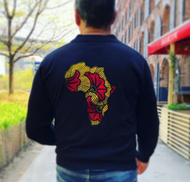Hands. Heart. Heritage. Home.
Aug 15th 2020
At the time of this writing, the United States is in the midst of an election, and humans across the globe are craving connection in the midst of a pandemic. People of good faith want to make an impact; we want to effect positive change. While not everyone is predisposed to run for office, to be a vocal advocate, to spend days and nights in the laboratory or in devotion to a cause, when choosing what to buy for ourselves and our homes, we can all strive to always vote with our dollars to make the world a better place.
The author Anna Lappé is a renowned champion for sustainability and justice along the food chain, but her words apply equally to the realm of home decor: “Every time you spend money, you’re casting a vote for the kind of world you want.” We at Mbare agree.
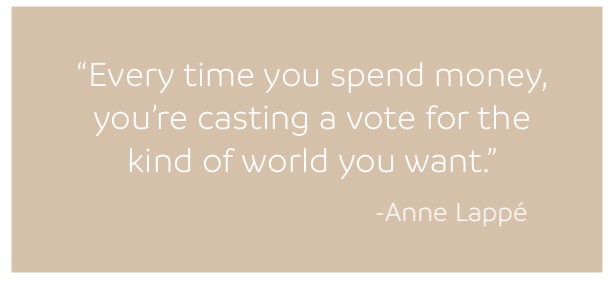
Most people go to work to provide sustenance for their families and to make the house they come home to a place of comfort and security, and many also seek to infuse their nests with beauty and meaning.
Those who are fortunate enough to travel, have treasures they brought home to spark memories of far-away places. Those who aren’t, have access to an abundance of inexpensive imports. But consumerism has its downside, and this profusion of choices has an exorbitant cost. It’s led not just to a homogenization of cultures, but to an exploitation of our planet and the people whose labor is degraded by atrocious working conditions and wages to produce these unreasonably low-priced products.
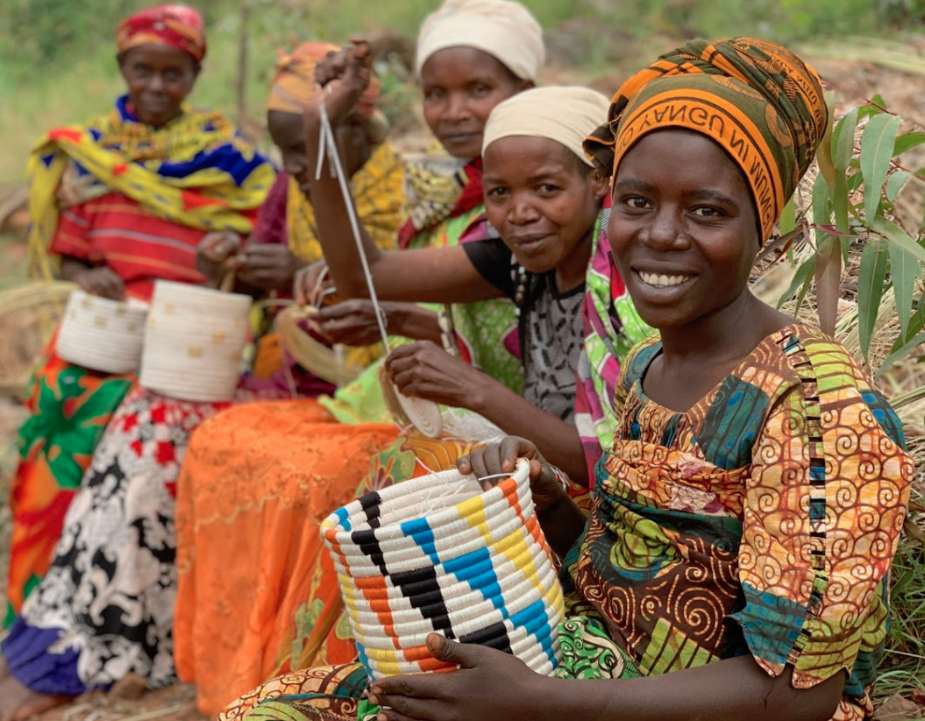
While more individuals and companies are thankfully embracing the notion that it doesn’t have to be this way, Mbare has been pioneering the movement for environmental and economic justice for more than 25 years: Before “fair trade” was a thing, before “recycling” was progressive, and before “sustainability” was even a well-known concept, our founder Robbie Stewart’s mission has been “To create sustainable sources of income for people and communities existing outside the influence of the formal economy.” He saw an opportunity to do that through the handcraft that is produced in these communities and at the same time share this cultural knowledge and skill with consumers in the first world.
While Mbare’s operations now span three continents, Africa is Robbie’s home. He’s familiar with the environment, the paradigms, and the cultures that we deal with. He understands the “ins and outs” of the place incredibly well. He knows firsthand what few of us can fully grasp.
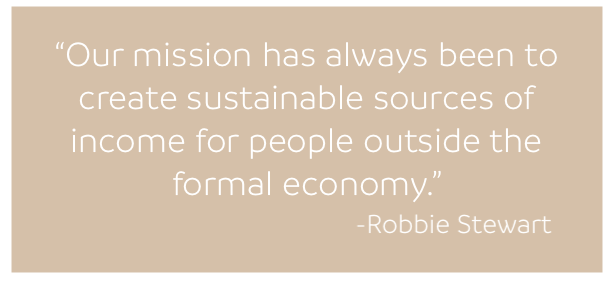
In rural areas in Africa, there’s very little or no support for people to make a living, much less if they want to sell their traditional crafts. The impact of this dearth of opportunity goes well beyond the monetary: An outlet for commerce acknowledges that the traditional customs and inherited skills of these artisans have cultural value, and are worth preserving. Mbare’s underpinning helps preserve the communities these artisans live in by creating work inside the villages, letting people sell their wares instead of having to abandon their families in search of distant, poorly paying manual labor.
We support our artisans in a myriad of ways: with supplies, transport for their products from remote areas, cash deposits in advance, quality-control training, knowledge about packing and shipping, and general business and accounting advice. We establish win-win partnerships, where the pricing is fair, discussed openly, and agreed upon with our partners. We deal with the artists themselves on an individual basis; there are no large factories or middlemen. We go to Africa several times a year to check on our production and our partners.
Every aspect of our endeavor is designed to foster the growth of our artisans’ cooperatives and small enterprises. As they grow, they involve and compensate more people to help them. Mbare is all about amplifying the ripple effects of abundance!
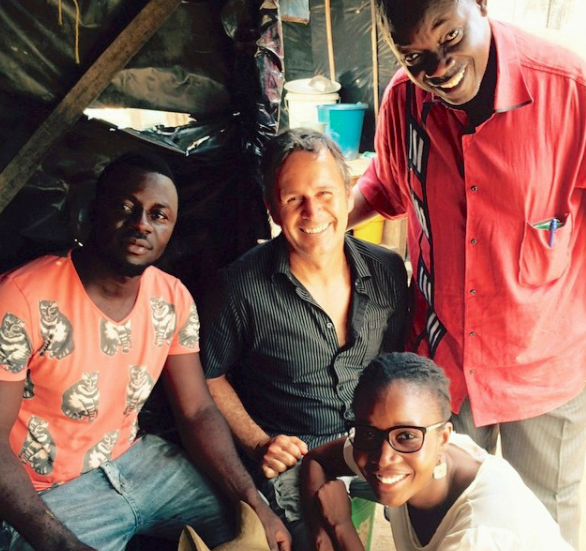
These words of William Morris, founder of the Arts and Crafts Movement in England, are familiar: “Have nothing in your house that you do not know to be useful, or believe to be beautiful.” But the way in which too many of us have come to know the quote is sadly ironic: It’s plastered on cheap plaques that are ubiquitous in the aisles of far too many indistinguishable stores. Mbare’s mission also holds true to these lesser-known but equally relevant words by Morris: “Nothing should be made by...labour which is not worth making, or which must be made by labour degrading to the makers.”
Mbare is grateful to have been able to stand at the forefront of this movement for conscious consumption. We are proud to offer beautiful products to people who share with actress Emma Watson a need for information about what she’s buying and the impact her purchases make: "It's not enough for me anymore that it's a beautiful item. I want to know who made it and where it came from.”
We at Mbare take into account the needs of the artists who create for our customers, and we always seek to anticipate and provide for the “demands” of both.
Orsola de Castro, Founder and Creative Director of Fashion Revolution, puts it this way: “Demand quality not just in the products you buy, but in the life of the person who made it.”
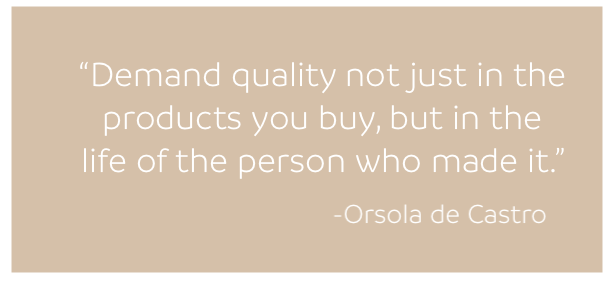
In our warehouse there’s the fresh scent of the cattail that Senegalese women use to weave their baskets, traces of Senegalese sand that ends up on the floor. These tactile, sensory reminders connect us across continents. As we snugly pack wooden meerkats for another leg of their journey, we note their individual expressions and imagine the carver who created these charmers. There’s a consciousness expressed (and often signatures left) in everything that passes through us on its way to you.

Swami Kriyananda (J. Donald Walters), who founded a worldwide movement of spiritual intentional communities, expresses our sentiments: “When you buy something made by a person, there’s something special there; and you do feel it! The consciousness with which a thing is made is often more important than the thing itself.”
The objects these artisans craft with their hands exemplify not just extraordinary skill and patience; they embody the resilience and empowerment stories of the people who made them. They reflect their heritage and their heart’s devotion. The pride these artists take in their creations is matched only by the pride we take in our commitment to ushering these objects of beauty and integrity from their hands in Africa to yours, wherever you call home.

